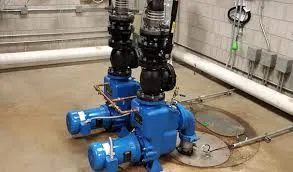Nepali
- Afrikaans
- Albanian
- Amharic
- Arabic
- Armenian
- Azerbaijani
- Basque
- Belarusian
- Bengali
- Bosnian
- Bulgarian
- Catalan
- Cebuano
- Corsican
- Croatian
- Czech
- Danish
- Dutch
- English
- Esperanto
- Estonian
- Finnish
- French
- Frisian
- Galician
- Georgian
- German
- Greek
- Gujarati
- Haitian Creole
- hausa
- hawaiian
- Hebrew
- Hindi
- Miao
- Hungarian
- Icelandic
- igbo
- Indonesian
- irish
- Italian
- Japanese
- Javanese
- Kannada
- kazakh
- Khmer
- Rwandese
- Korean
- Kurdish
- Kyrgyz
- Lao
- Latin
- Latvian
- Lithuanian
- Luxembourgish
- Macedonian
- Malgashi
- Malay
- Malayalam
- Maltese
- Maori
- Marathi
- Mongolian
- Myanmar
- Nepali
- Norwegian
- Norwegian
- Occitan
- Pashto
- Persian
- Polish
- Portuguese
- Punjabi
- Romanian
- Russian
- Samoan
- Scottish Gaelic
- Serbian
- Sesotho
- Shona
- Sindhi
- Sinhala
- Slovak
- Slovenian
- Somali
- Spanish
- Sundanese
- Swahili
- Swedish
- Tagalog
- Tajik
- Tamil
- Tatar
- Telugu
- Thai
- Turkish
- Turkmen
- Ukrainian
- Urdu
- Uighur
- Uzbek
- Vietnamese
- Welsh
- Bantu
- Yiddish
- Yoruba
- Zulu
Telephone: +86 13120555503
Email: frank@cypump.com
नोभ . 25, 2024 11:58 Back to list
auxiliary slurry pump supplier
The Role of Auxiliary Slurry Pump Suppliers in Industrial Operations
In the vast landscape of industrial operations, the importance of reliable machinery cannot be overstated. Among these essential components is the slurry pump, particularly auxiliary slurry pumps, which play a vital role in the transportation and management of viscous materials in various industries. This article delves into the significance of auxiliary slurry pump suppliers and how they contribute to the efficiency and effectiveness of industrial processes.
Understanding Auxiliary Slurry Pumps
Before exploring the role of suppliers, it is crucial to understand what auxiliary slurry pumps are. These pumps are designed to handle and transport slurry, a mixture of liquid and solid particles. This type of pump is commonly used in mining, mineral processing, and other heavy-duty applications where materials are not in a pure liquid state. Due to the abrasive and corrosive nature of slurries, these pumps are engineered with durable materials and specialized designs to withstand challenging operating conditions.
The Importance of Reliable Suppliers
Auxiliary slurry pump suppliers are the backbone of industries that rely on these pumps for their daily operations. The quality of the pumps and the support provided by suppliers can significantly impact the performance and longevity of industrial equipment.
1. Quality Assurance Reputable suppliers offer high-quality slurry pumps that meet industry standards. They ensure that their products are manufactured using advanced technology and materials designed to withstand abrasive slurries. Quality assurance from suppliers helps reduce downtime, enhances productivity, and lowers maintenance costs over time.
2. Expert Guidance A knowledgeable supplier can provide valuable insights into the selection of the right pump for specific applications. With various types and models of slurry pumps available, suppliers assist clients in understanding their options based on factors such as the properties of the slurry, required flow rates, and operating conditions. This expertise ensures that businesses invest in pumps that are well-suited for their unique needs.
auxiliary slurry pump supplier

3. Customized Solutions Different industries may have unique requirements when it comes to slurry pumps. Reliable suppliers often offer customizable solutions tailored to meet the specific demands of their clients. This personalization can include modifications to pump design, materials, or performance specifications, ensuring optimal efficiency in their operations.
After-Sales Support and Maintenance
The relationship between a supplier and its clients does not end with the purchase of the pump. After-sales support is a crucial aspect that distinguishes exceptional suppliers from the rest. Offering maintenance services, spare parts, and technical support, these suppliers ensure that pumps remain functional and efficient throughout their operating life.
1. Regular Maintenance Many suppliers offer routine maintenance contracts that include inspections and servicing of slurry pumps. Regular maintenance helps identify potential issues before they escalate, extending the life of the equipment and avoiding costly breakdowns.
2. Quick Response Time In the event of a pump failure or performance issue, having a supplier that can quickly respond and provide solutions is invaluable. This rapid response minimizes downtime and keeps production processes running smoothly.
3. Training and Resources Suppliers often provide training and resources for their clients, educating them on best practices for pump operation and maintenance. This knowledge empowers businesses to manage their equipment effectively, further enhancing operational efficiency.
Conclusion
In conclusion, auxiliary slurry pump suppliers are instrumental in ensuring the success of industries that rely on the movement of viscous materials. Their commitment to quality, expert guidance, customized solutions, and robust after-sales support makes them invaluable partners in the industrial landscape. As industries continue to evolve and face new challenges, the role of these suppliers will remain critical in promoting operational efficiency and sustainability. By fostering strong relationships with reliable suppliers, businesses can secure their operations' long-term success and competitiveness.
-
ISG Series Vertical Pipeline Pump - Chi Yuan Pumps Co., LTD.|High Efficiency, Low Noise, Durable
NewsAug.02,2025
-
ISG Series Vertical Pipeline Pump - Chi Yuan Pumps | High Efficiency, Low Noise
NewsAug.02,2025
-
ISG Series Vertical Pipeline Pump- Chi Yuan Pumps Co., LTD.|High Efficiency&Compact Design
NewsAug.02,2025
-
Heavy-Duty Mining Sludge Pumps - Wear-Resistant Slurry Handling
NewsAug.02,2025
-
Horizontal Split Case Pump with GPT-4 Turbo | High Efficiency
NewsAug.01,2025
-
ISG Series Pipeline Pump - Chi Yuan Pumps | High Efficiency, Durable Design
NewsAug.01,2025










